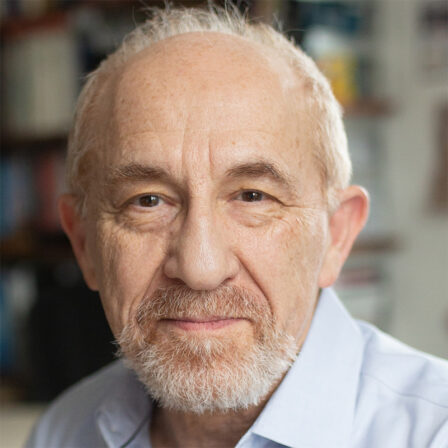Distinguished Lecture: All-day Augmented Reality Glasses: Promises and Problems
Henry Fuchs
Federico Gil Distinguished Professor of Computer Science and Adjunct Professor of Biomedical Engineering, University of North Carolina at Chapel Hill
 Many of us foresee of a future in which AR eyeglasses are worn all day, replacing, and enhancing of our current prescription eyewear. That future may not arrive for a while and predicting its benefits and problems may be as premature and inaccurate as early predictions about the use of mobile phones or about “a helicopter in every garage.” Nevertheless, a few
Many of us foresee of a future in which AR eyeglasses are worn all day, replacing, and enhancing of our current prescription eyewear. That future may not arrive for a while and predicting its benefits and problems may be as premature and inaccurate as early predictions about the use of mobile phones or about “a helicopter in every garage.” Nevertheless, a few
sample applications seem both obvious and promising: 1) continuous physiological monitoring for sudden and long-term health changes, and 2) virtually embodied avatars for guidance in navigation, exercise, and training. I will also talk about the rocky history of head-worn AR systems, which in contrast to the amazing, continuous advances in Integrated Circuit fabrication technology, has gone through multiple bust and boom cycles. I will talk about a few of the historic obstacles and how some were overcome, and others side-stepped. I will summarize a few of the remaining problems, possible paths to their solution, and describe several of our research projects in these areas.
Bio: Henry Fuchs is the Federico Gil Distinguished Professor of Computer Science and Adjunct Professor of Biomedical Engineering at the University of North Carolina at Chapel Hill. He has been active in interactive 3D graphics and related fields since the 1970s, including rendering algorithms (BSP Trees), graphics engines (Pixel-Planes), 3D reconstruction, office of the future, telepresence, and medical applications. He is a member of the National Academy of Engineering, a fellow of the American Academy of Arts and Sciences, a recipient of the ACM SIGGRAPH Coons Award for lifetime achievement, and an honorary doctorate from TU Wien, the Vienna University of Technology.